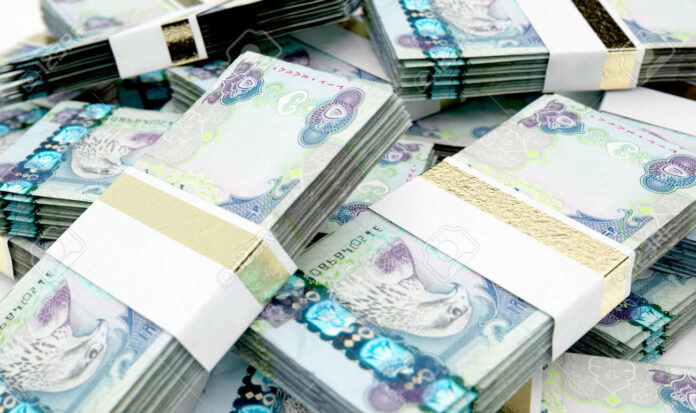The United Arab Emirates (UAE) has rolled over a $2b debt, granting Pakistan’s interim government a substantial fiscal respite. This move comes at a pivotal moment as Pakistan engages in discussions with the International Monetary Fund (IMF) for the release of a crucial $1.2 billion loan tranche.
The recent developments are part of broader financial adjustments. The IMF, in its latest report, revised its projections for Pakistan’s budget support loans to $3 billion and reduced project financing estimates to $3.7 billion for the current fiscal year.
This recalibration has led to a reduction in Pakistan’s overall external financing needs to just under $25 billion, with a slight decrease in current account deficit projections.
The State Bank of Pakistan’s Governor, Jameel Ahmad, confirmed the UAE’s extension of the debt repayment period by another year. He also noted that the IMF had disbursed a second loan installment of $706 million, contributing to a total disbursement of $1.9 billion under a larger $3 billion bailout program.
These financial boosts come at a critical time for Pakistan, whose foreign exchange reserves remain below $9 billion, despite being under the IMF program since July of the previous year.
The UAE’s rollover includes a $1 billion debt extended for an additional year, and another $1 billion due on January 23. Last week, Pakistan’s finance ministry sought a further one-year extension from the UAE.
The extended $2 billion loan from the UAE initially had an interest rate of 3%, but the most recent $1 billion extension came at a higher rate of 6.5%. The Prime Minister’s Office had requested that the UAE maintain the original terms for the loan extension.
Additionally, Saudi Arabia and China have made significant deposits with the State Bank of Pakistan, amounting to $5 billion and $4 billion, respectively. These deposits, alongside the UAE’s contribution, total $12 billion. However, Pakistan’s official reserves are still below the $9 billion mark.
The continuation of loan renewals from the UAE, China, and Saudi Arabia hinges on Pakistan’s engagement with the IMF and the approval of its first program.
The finance ministry has urged the IMF to dispatch a new mission to Pakistan for a second review, aiming to secure the final $1.2 billion loan tranche.
The timing of the IMF’s response and the upcoming general elections on February 8 may influence the course of these financial negotiations.
Former Finance Minister Ishaq Dar indicated that the outcome of the elections and the subsequent government’s stance towards the IMF program would be pivotal in determining Pakistan’s financial strategy.
The IMF’s upcoming mission is vital not only for securing the last tranche but also for initiating talks for a new long-term program.
The IMF’s revised projections suggest a current account deficit of $5.7 billion or 1.6% of GDP for Pakistan, a minor adjustment from its previous estimates. The current account deficit for the first half of this fiscal year stood at $831 million, potentially remaining around 0.5% of GDP or $1.8 billion for the entire year.
Pakistan’s external financing requirements have been adjusted from $28.3 billion to $25 billion, factoring in reduced private and public sector repayments and current account adjustments.
























